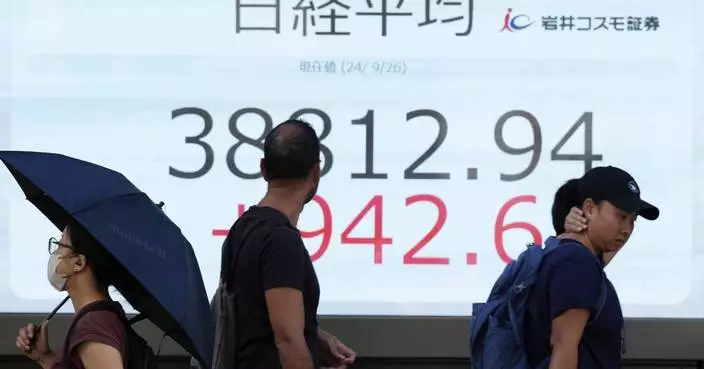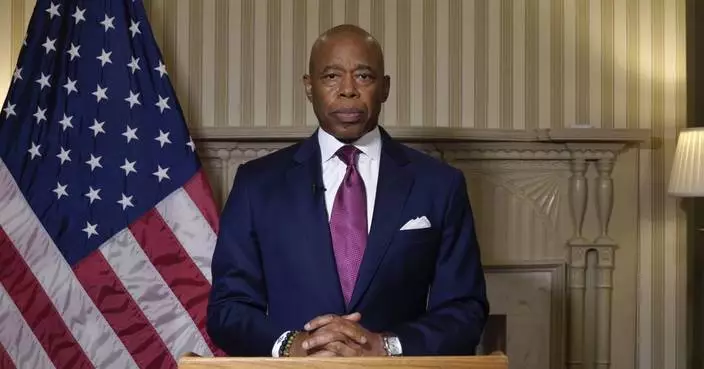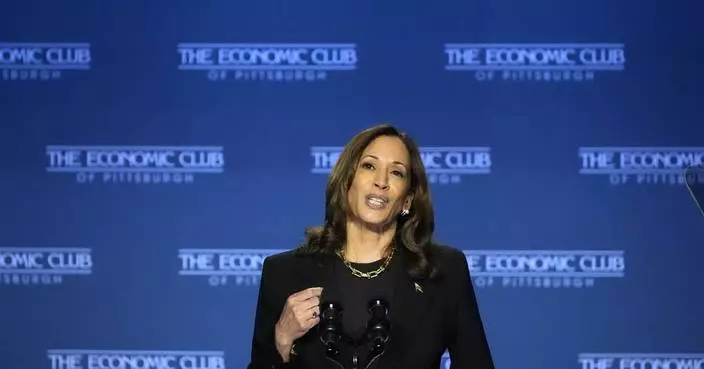NEW YORK (AP) — Eating in is in and eating out is out.
That's the message that inflation-squeezed consumer s have been sending to fast-food companies and other restaurants. Meanwhile food producers are benefitting from more palatable prices in grocery store aisles.
Inflation has been easing broadly for more than a year now, and it's been cooling faster for grocery items since the middle of the year. The current trend marks a reversal from previous years when grocery inflation outpaced restaurants as food producers raised prices, often fattening their profit margins.
The shift has been weighing on McDonald's, Olive Garden owner Darden Restaurants, and similar chains.
Orlando-based Darden reported a 1.1% sales drop at restaurants open for at least a year. The decline was a more severe 2.9% at the Olive Garden chain. July was especially weak.
McDonald's reported a 1.1% drop for that same sales measure during its second quarter, compared with an 11.7% jump a year prior.
“You are seeing consumers being much more discretionary as they treat restaurants,” said McDonald's CEO Christopher J. Kempczinski, in a call with analysts following the earnings report. “You’re seeing that the consumer is eating at home more often. You’re seeing more deal seeking from the consumer.”
Both Darden and McDonald's are offering more bargains to entice cautious consumers. Olive Garden has brought back its “never ending pasta bowl," while McDonald's introduced its $5 value meal deal.
Consumers have been focusing more on groceries and eating at home, and that's driving sales volumes for companies like General Mills, which makes Cheerios cereal, Progresso soups and Haagen-Dazs ice cream.
“We did anticipate that might be the case as we see consumers taking value,” said General Mills CEO Jeffrey L. Harmening in a call with analysts. “Consumers are still economically stressed, so that played out the way we thought.”
General Mills and other food producers had raised prices to offset rising inflation, resulting in profit margin boosts for many of them. Now they are among food producers trimming some prices to ease the squeeze on consumers.
Grocery stores have also reaped more of the benefits from consumers dining at home. Kroger reported a 1.2% rise in sales at stores open at least a year during its most recent quarter. Wall Street expects that measure to rise 1.8% during Kroger's current quarter and 2.1% during the final quarter of its fiscal year.
“We are cautiously optimistic about our sales outlook for the second half of the year and expect customers to continue prioritizing food and essentials,” said Kroger CEO Rodney McMullen.
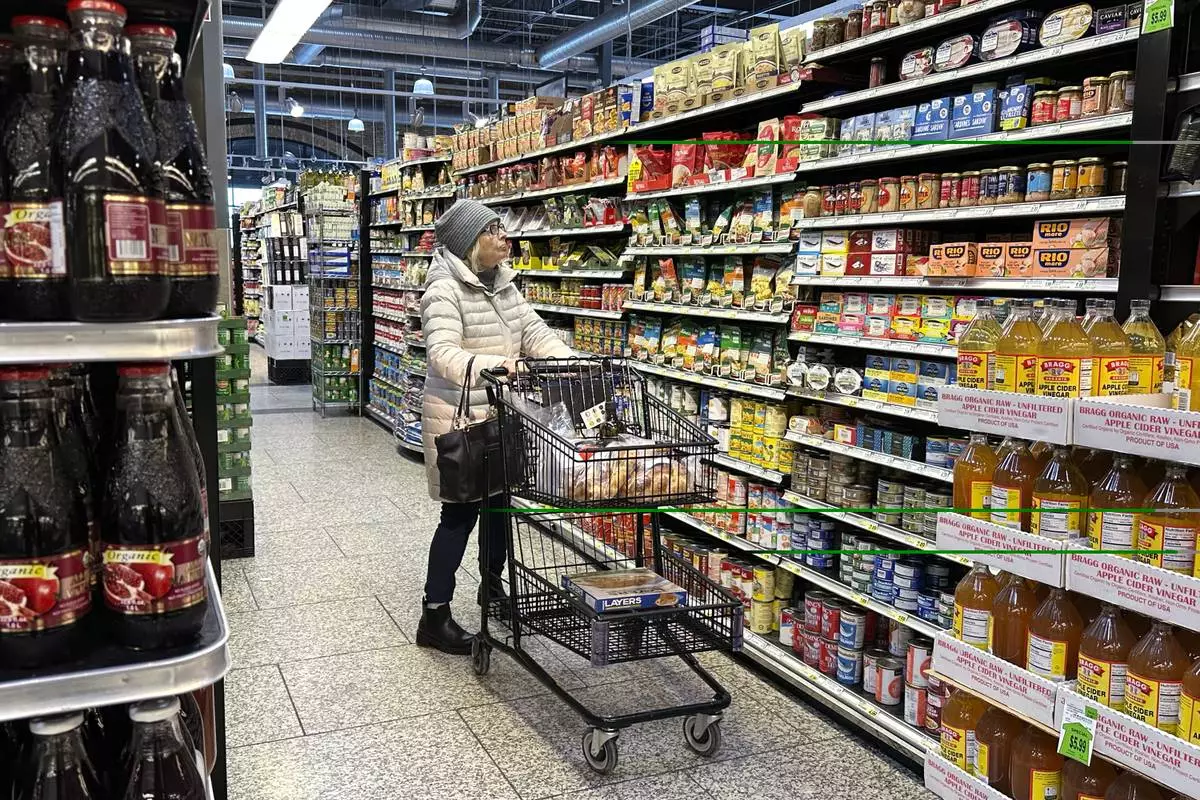
A woman checks prices as she shops at a grocery store in Wheeling, Ill., Friday, Jan. 19, 2024. (AP Photo/Nam Y. Huh)
DALLAS (AP) — Southwest Airlines said Thursday that it plans to end the open-boarding system it has used for more than 50 years and start flights with passengers sitting in assigned seats during the first half of 2026 as the company remodels the airline to change with consumer tastes and in hopes of boosting profits.
CEO Robert Jordan and other Southwest executives gave details about the airline's future transformation at an investor meeting in Dallas. The airline plans to reserve a third of seats on its flights for passengers who would pay a premium to get up to five extra inches of legroom - and provide a source of more revenue.
The changes to some of Southwest’s quirky habits are designed to reverse its slumping stock price and to fend off a possible proxy fight with hedge fund Elliott Investment Management that could cost Southwest leaders their jobs.
It’s unclear whether the changes will work, but they could leave an airline that bears little resemblance to the Southwest customers know — a carrier that still has a core of rabid fans. However, Southwest stock was 11% higher in midday trading and on track for its best day since 2020.
Ahead of the meeting, the airline announced that it expects to begin selling assigned seats just like all other airlines in the second half of 2025 and launch flights under the new model in the first half of 2026. The open-boarding system it has used will disappear, and passengers will get to pick their seats in advance, just like on all the other big airlines.
Southwest says its surveys show that 80% of its customers now want to know their seat before they get to the airport instead of having to search for open seats when they board the plane. As part of the switch, the airline will have four airfare tiers, each offering more convenience and comfort.
Southwest officials told investors that focus groups and surveys revealed a strong customer desire for the ability to personalize their flight experiences in accordance with their budgets. The airline said it expects the premium product to appeal to business travelers.
The introduction of assigned and premium seating also will require some changes to how passengers board planes before takeoff. In the past, Southwest customers were assigned their places in boarding lines based on when they checked in and then left to scramble for their preferred places on planes.
The system had become less democratic over time as Southwest let people pay extra to guarantee early spots. The airline said that in the future, boarding groups no longer will be based on check-in times and its “most loyal customers and those who purchase premium seating” will receive priority.
However, the airline said it would continue to allow passengers to check two bags for free, describing the policy as “the most important feature by far in setting Southwest apart from other airlines.”
U.S. airlines brought in more than $7 billion in revenue from bag fees last year, with American and United reaping more than $1 billion apiece. Wall Street has long argued that Southwest is leaving money behind.
But Southwest has built years of advertising campaigns around bags-fly-free. Taking away that perk could change the airline's DNA as much as — or maybe more — than dumping open seating. The airline said doing away with its policy “would drive down demand and far outweigh any revenue gains created by imposing and collecting bag fees.”
Southwest has been contemplating an overhaul for months, but the push for radical change became even more important to management this summer, when Elliott Investment Management targeted the company for its dismal stock performance since early 2021.
Tom Fitzgerald, an airline analyst with TD Cowen, said investors will be interested to see if Southwest introduces a cut-rate “basic economy” fare or offers changes to its Rapid Rewards frequent-flyer program.
The analyst said another major topic of interest would be whether Southwest plans to reduce its flying next year instead of growing, and whether it plans to keep shrinking the workforce. Southwest expects to cut about 2,000 jobs this year through attrition.
Company management heads into the investor day having angered an important interest group: its own workforce. The airline told employees Wednesday that it will make sharp cuts to service in Atlanta next year, resulting in the loss of 340 pilot and flight attendant positions.
Employee unions are watching the fight between Elliott Investment Management and airline management, but they are not taking sides. “That’s between Southwest and Elliott, and we’ll see how it plays out,” Alison Head, a flight attendant and union official in Atlanta, said.
However, the unions are concerned that more of their members could be forced to relocate or commute long distances to keep their jobs. Southwest’s chief operating officer told employees last week that the airline will have to make “difficult decisions” about its network to improve its financial performance.
Elliott seized on that comment, saying that Southwest leaders are now “taking any action – no matter how short-sighted – that they believe will preserve their own jobs.”
The hedge fund controlled by billionaire financier Paul Singer now owns more than 10% of Southwest shares and is the airline’s second-biggest shareholder. It wants to fireCEO Jordan and Chairman Gary Kelly and replace two-thirds of Southwest’s board.
Southwest gave ground this month, when it announced that six directors will leave in November and Kelly will step down next year. The airline is digging in to protect Jordan, however.
Elliott increased its pressure on Southwest this week by saying that it intends to call a special shareholder meeting as soon as next week to make the case for a board overhaul. Elliott has a slate of 10 potential nominees, including former airline CEOs.
“We do not support the company’s current course, which is being charted in a haphazard manner by a group of executives in full self-preservation mode,” Elliott said this week in a letter to other shareholders.
Jordan fired back on Wednesday, saying it is Elliott that wants to fly solo by lobbing “another negative press public ambush” instead of contributing to Southwest’s “transformational plan.”
“We’re willing to compromise, but acquiescing to a single shareholder’s demand for control of the company is not a compromise,” Jordan said. “There’s a lot to be excited about in Southwest, and we will not allow Elliott’s public attacks to distract us.”
Before Thursday’s event started, Southwest announced a $2.5 billion share-buyback program designed to make existing shares more valuable.
The airline also said that a third-quarter revenue ratio will rise by up to 3% instead of being between flat and down 2%, partly because Southwest gained passengers from other airlines during the CrowdStrike computer outage in July, which hit Delta Air Lines particularly hard. And it named a former AirTran and Spirit Airlines CEO to its board.
Shawn Cole, a founding partner of executive search firm Cowen Partners, whose firm has worked for other airlines but not Southwest, believes Southwest is too insular and should follow the recent examples of Starbucks and Boeing and hire an outsider as CEO. He thinks many qualified executives would be interested in the job.
“It would be a challenge, no doubt, but Southwest is a storied airline that a lot of people think fondly of,” Cole said. “If Boeing can do it, Southwest can do it.”
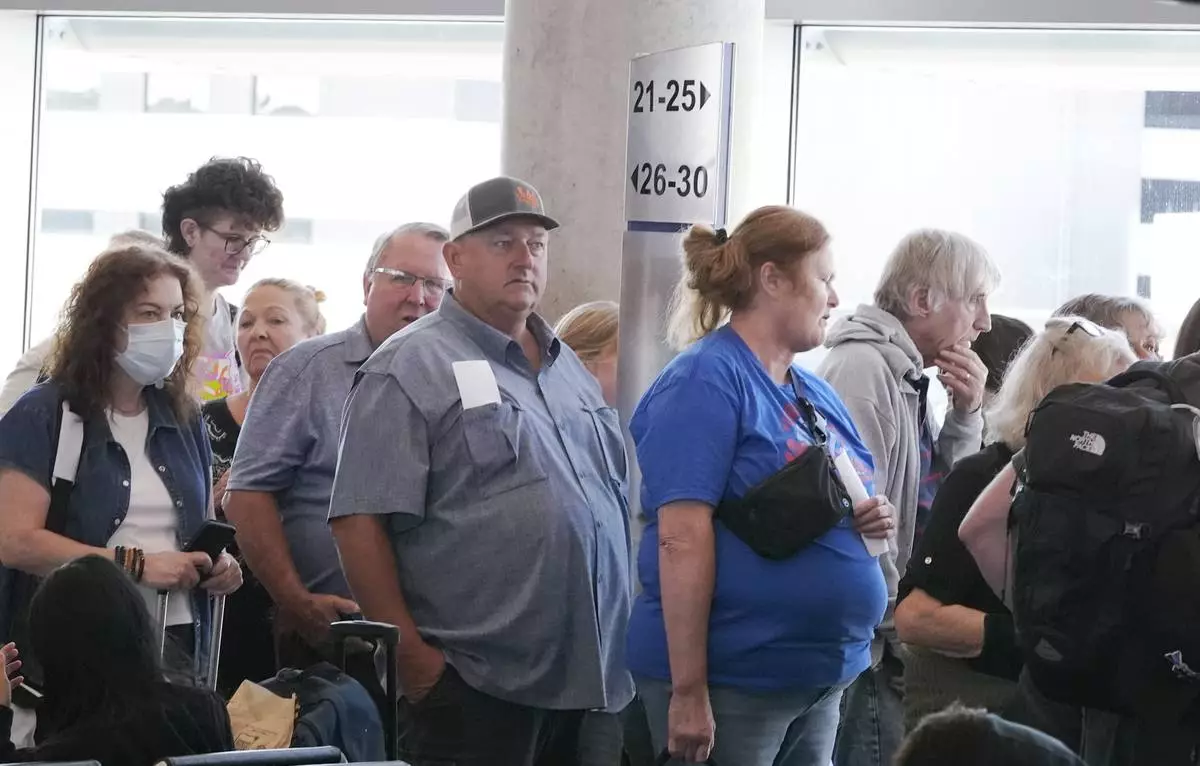
FILE - Travelers line up to board a Southwest Airlines plane at Love Field in Dallas, Thursday, July 25, 2024. (AP Photo/LM Otero, File)
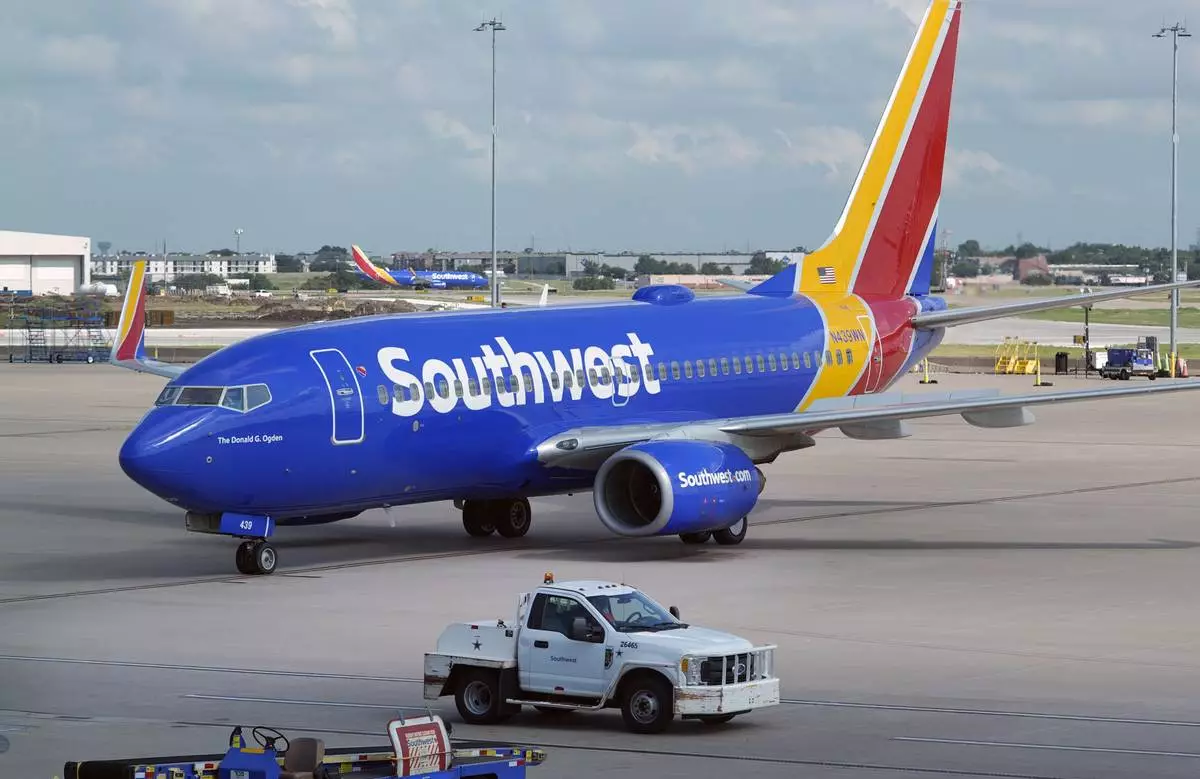
FILE - A Southwest Airlines plane moves to depart from Love Field in Dallas, July 25, 2024. (AP Photo/LM Otero, File)
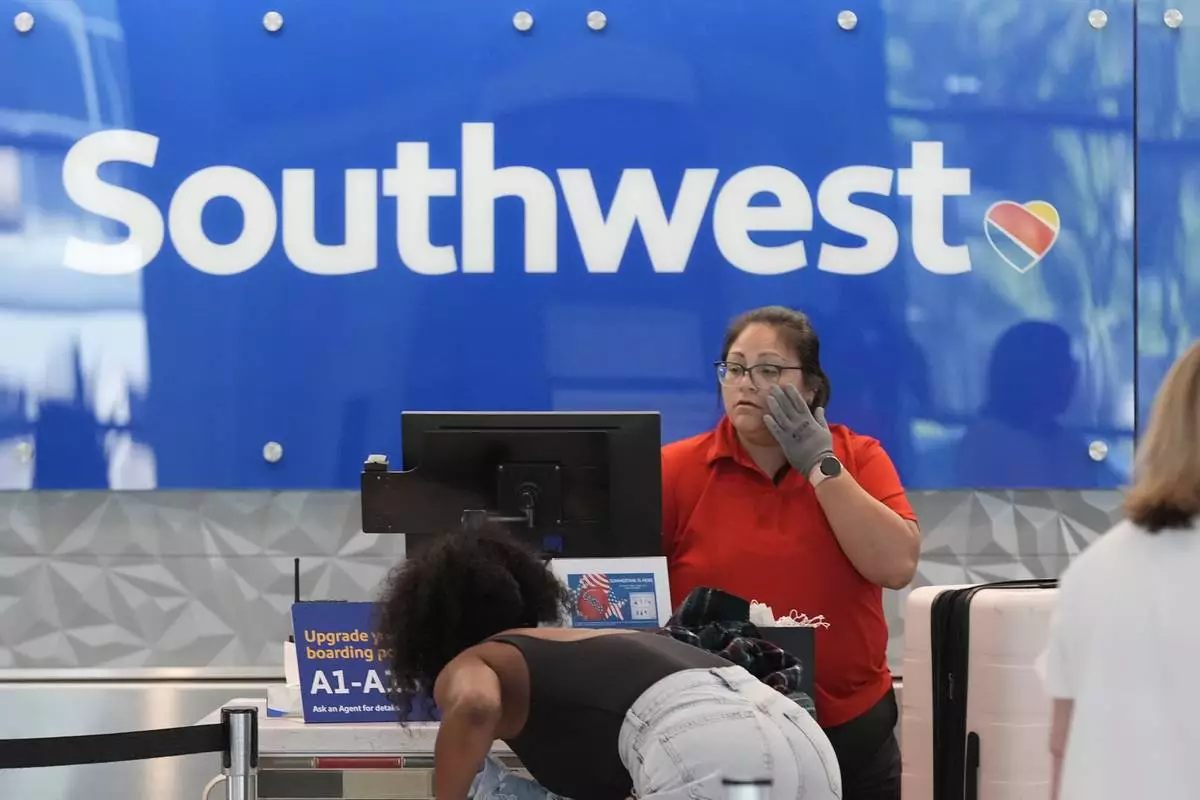
FILE - A Southwest Airlines ticket agent checks in passengers at Love Field in Dallas, July 25, 2024. (AP Photo/LM Otero, File)











